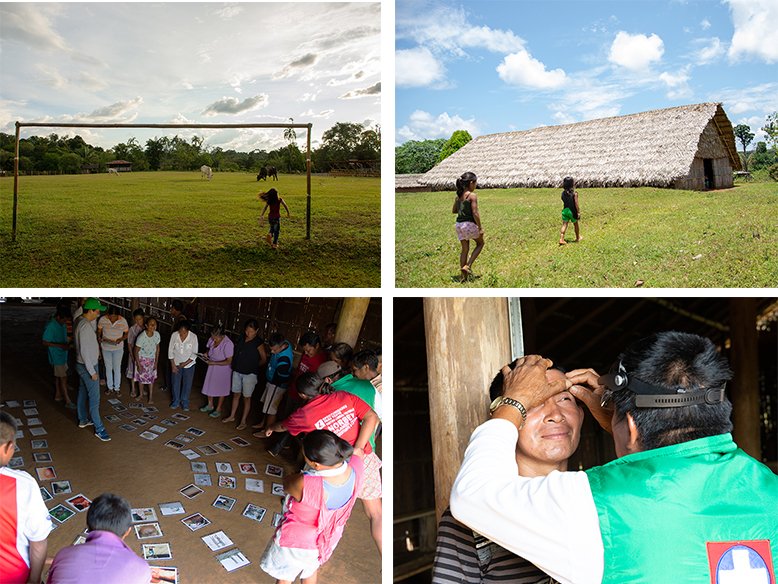null
pci-equador-colombia
Visita amazónica
Visita amazónica
September 28, 2018
- La Fundación Probitas se desplaza a Ecuador y al Vaupés colombiano para realizar una visita de seguimiento de proyectos
Proyecto GLI Ecuador
El proyecto GLI Ecuador se inició en 2012 con la colaboración de ACNUR y más tarde fue OXFAM Italia la que continuó la gestión del proyecto. Probitas firmó un acuerdo de colaboración con la ONG en 2015. La finalidad de este proyecto consistía en ayudar a las poblaciones vulnerables de la zona fronteriza entre Ecuador y Colombia, especialmente a los refugiados colombianos que huían de los enfrentamientos y de la inestabilidad del país. Por tratarse de población indígena, el proyecto se desarrolló con un enfoque que ha enfatizado los aspectos culturales de la salud de estas comunidades, tanto en la prevención como en la atención. En sus inicios, el proyecto requería una actuación de urgencia debido al derrame de crudo en las aguas del río San Miguel, que impedía el acceso al agua potable convirtiéndose en una emergencia de salud pública.
Actualmente, el proyecto está finalizado y la Fundación Probitas se ha desplazado para hacer una visita de seguimiento con el objetivo de evaluar la situación del proyecto, al cabo de un año de su cierre, y para reforzarlo con nuevas actuaciones:

Actualmente, el proyecto está finalizado y la Fundación Probitas se ha desplazado para hacer una visita de seguimiento con el objetivo de evaluar la situación del proyecto, al cabo de un año de su cierre, y para reforzarlo con nuevas actuaciones:

- La realización de un taller de capacitación al personal de salud de los distritos en los que se ha desarrollado el proyecto.
- El establecimiento de controles de calidad externos a los laboratorios.
- El apoyo al Ministerio de Salud Pública con el presupuesto para el mantenimiento de los equipos de los laboratorios.
- La puesta en marcha del programa GLI Software a todos los laboratorios para mejorar la gestión interna de los mismos.
Durante la visita también se ha detectado que los laboratorios de la zona se están utilizando tal y como estaba previsto y que el personal sanitario que trabaja está muy motivado gracias a las mejoras que ha aportado el proyecto a su trabajo diario.
Proyecto Sinergias
El Proyecto de Colaboración Internacional llevado a cabo por Sinergias está orientado a la prevención y control de seis enfermedades infecciosas desatendidas en 18 comunidades indígenas del área rural de Mitú, en el departamento de Vaupés situado en la región amazónica de Colombia. El proyecto, que forma parte de un programa más amplio, tiene el objetivo de mejorar el acceso a los servicios de salud con un enfoque intercultural y de equidad de género.
En este país la visita ha permitido conocer las diferentes actividades que se están llevando a cabo en este segundo año de colaboración con Sinergias. Algunas de las conclusiones que se pudo extraer son que el proyecto está funcionando con un gran nivel de participación tanto por parte de los beneficiarios como de las administraciones públicas de salud del país y que el enfoque del proyecto hacia la integridad cultural se está manteniendo.
En ambos proyectos se ha trabajado con las poblaciones diana de la Fundación Probitas, en este caso, poblaciones indígenas, aisladas y muy desfavorecidas del Amazonas peruano y colombiano. El viaje ha servido, una vez más, para dar a conocer la realidad en la que viven determinadas comunidades y el trabajo que realizan aquellos que tratan de mejorar esta realidad.

